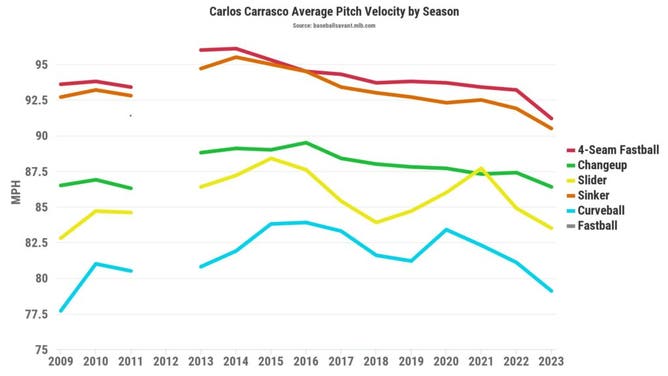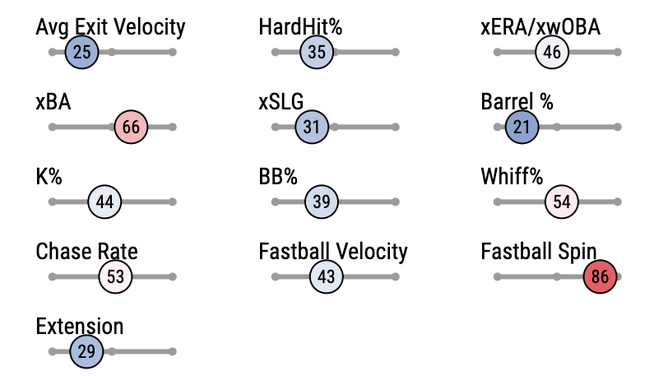Are Mets Pitchers Too Old to Deal With the Pitch Clock?
The New York Mets may be more severely impacted by the introduction of MLB's pitch clock than other teams.
According to a New York Post report, the Mets have had to maneuver around the pitch clock more than most. Not because of any specific talent deficiency or lack of work ethic, but because their staff is so old.
The Mets pitching staff has the highest average age of any team in MLB, at 32.2. And it's been a major adjustment for a number of their most important pitchers.
Max Scherzer has been perhaps the most obvious example, as the superstar starter struggled significantly in his first two starts of the season. Even after he seemed to manipulate it to get a strikeout in spring training.
READ: MAX SCHERZER GETS PUNISHED WITH PITCH CLOCK VIOLATION, THEN USES IT TO MANIPULATE HITTER
It's not just Scherzer though. Carlos Carrasco has also been demonstrably affected, with two violations and a substantial decline in velocity.
Numbers Behind Mets' Struggles
Carrasco's velocity decline may be most concerning for the Mets hopes this season.
As with most pitchers, his average pitch speed has declined as he's aged. But even compared with his 2022 numbers they're down significantly.

That could point to larger, potential injury-related, issues for Carrasco. Or it could be a combination. But it's concerning regardless.
Scherzer too, has seen his numbers decline precipitously through three starts.
Per Baseball Savant's percentile rankings of major categories, Scherzer has been well below average in virtually every category.

While it's just three starts, Scherzer's barrel percentage has been 13.6% in 2023, compared to 8.0-8.4% from 2020-2022. His average exit velocity allowed has jumped from 87.9mph in 2021 and 87.8mph in 2022 to 91.3mph in 2023.
Could the Staff Struggle All Season?
The reason for this decline has been debated, but some point the finger at shorter times to rest between innings.
Joel Sherman in the New York Post quoted a "top NL executive" saying that teams are no longer able to help their staff with longer offensive innings.
“In the past when a pitcher had a taxing inning, we could stall on offense,” the executive said. “I would think this will take its toll on pitcher endurance.”
Scherzer and Carrasco are already examples, and the Mets have yet to see 40-year-old Justin Verlander pitch under the new rules either.
Whatever the underlying reason, it hasn't totally decimated the team's run prevention efforts.
Through 11 games, the Mets have allowed 46 runs, which ranks 6th in the National League. While not outstanding, their performance has been far from catastrophic.
Going forward however, there are questions around older pitchers potentially breaking down sooner. On the other hand, the staff may get used to the changes and adjust their routines and recovery.
Even with the staff's struggles, the Mets are 6-5 and just one game behind. But given these early-season concerns, this could be something to watch the rest of the season.